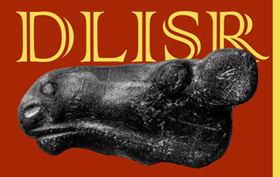Indigenous Science
Resources

| Digital Library of Indigenous Science Resources |
 |

| Introduction | Scope Statement | How to Use DLISR | Participate in DLISR | Credits | Feedback |
Supporters
Initial work on the DLISR -- planning, organizing, developing concepts, gathering resources, preparing the scope statement, and doing initial cataloging -- was supported by a grant from the National Science Foundation, GEO-0417447. Continued development of the library, including digitization of Snowchange's newest collection of Arctic Indigenous resources, is partially supported by NSF grant ARC-0503460. Any opinions, findings, and conclusions or recommendations expressed in this material are those of the authors, and do not necessarily reflect the views of the National Science Foundation. Tapestry Institute wishes to acknowledge the Geosciences Directorate for supporting pilot work for this innovative means of enhancing earth sciences research and education, and the Office of Polar Programs for its support of Indigenous peoples and cultures of the Arctic. Digital Library of Earth Systems Education
The cataloging tool and search engine we are using, and the repository in which the library resides, are provided by the Digital Library for Earth Systems Education, DLESE, in Boulder, Colorado. In particular, Tapestry Institute wishes to thank that project's Principle Investigator, Mary Marlino, Ph.D., for seeing our vision and understanding how to help us get there. We are also very grateful to DLESE programming and curriculum staff Katy Ginger, Shelley Olds, and John Weatherley for turning our imprecise concepts into an actual, searchable database. Without the leadership, expertise, support, and encouragement of these people and the vision of collaborative, cooperative science education they represent, the DLISR literally could not and would not exist. Return to the DLISR Collection. DLISR is maintained by Tapestry Institute.
|